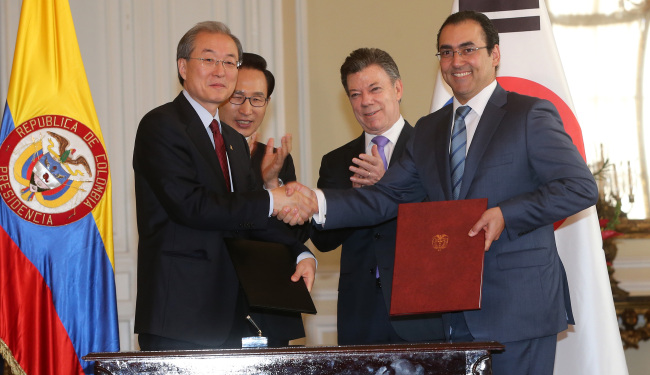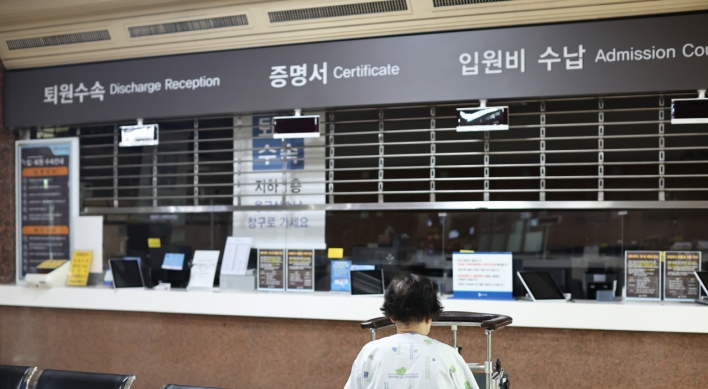The bilateral free trade agreement with Colombia is expected to boost Korea’s exports of autos, auto parts and petrochemicals to the South American country.
The trade pact with the third-largest market in Latin America, which has inked FTAs with nine countries and is in talks for four more, will also help Korean companies expand business to other nations in the region, the Seoul government said.
Korea and Colombia announced Monday during President Lee Myung-bak’s visit to Bogota that they have concluded the FTA negotiations that started two and a half years ago in December 2009.

The trade pact with the third-largest market in Latin America, which has inked FTAs with nine countries and is in talks for four more, will also help Korean companies expand business to other nations in the region, the Seoul government said.
Korea and Colombia announced Monday during President Lee Myung-bak’s visit to Bogota that they have concluded the FTA negotiations that started two and a half years ago in December 2009.


Officials expect the free trade deal to take effect in the first half of next year after legal scrubbing, translation work and ratifications by the parliaments.
Lee said he anticipates Korea’s trade with Colombia to increase fivefold in five years if the pact is implemented.
“Colombia is an ideal FTA partner for us, considering the complementary nature of the two countries’ economies under which we export manufacturing goods and import raw materials and resources, as well as the high tariff rates Colombia imposes on our major export items such as autos,” Korea’s Trade Minister Bark Tae-ho said during a briefing in Bogota.
Under the FTA, Colombia will remove the 35 percent tariff on Korean cars over 10 years, raising their price competitiveness.
Tariffs on diesel-powered vehicles with engine displacements of between 1.5 and 2.5 liters, or sport-utility vehicles, will be eliminated over nine years.
Colombia’s demand for SUVs, which accounted for 22.5 percent of the country’s passenger car market last year, is growing with increasing income levels, despite the high duties.
The FTA will also scrap the 5-15 percent tariffs on auto parts over five years.
Cars and auto parts account for 65 percent of Korea’s exports to Colombia.
Duties of between 15 and 20 percent on Korean textiles and clothing will be removed in seven years.
In return, the FTA will eliminate the tariffs of up to 8 percent on Colombian coffee immediately or over three years.
As for beef, duties on two Colombian boneless meat parts and three parts that are not specified risk materials will be scrapped over 19 years, flowers in seven years, and bananas in five years after the free trade deal takes effect.
Exclusions to the concessions were made for 153 agricultural and fisheries items, including rice, powdered milk, garlic, onions, ginseng and pollack.
Korea exports mostly cars, auto parts, synthetic resins and tires to Colombia, and imports mostly coffee, crude oil and ferro alloys from the South American country.
Two-way trade amounted to nearly $2 billion last year ― $1.6 billion in Korean exports and $381 million in imports from Colombia.
“We share the understanding that the Korea-Colombia FTA is mutually beneficial to both sides, and that this agreement is a comprehensive and high-quality FTA,” said the joint statement signed by Bark and his Colombian counterpart, Sergio Diaz-Granados in Bogota.
By Kim So-hyun (sophie@heraldcorp.com)
-
Articles by Korea Herald





![[AtoZ Korean Mind] Does your job define who you are? Should it?](http://res.heraldm.com/phpwas/restmb_idxmake.php?idx=644&simg=/content/image/2024/05/06/20240506050099_0.jpg&u=)













